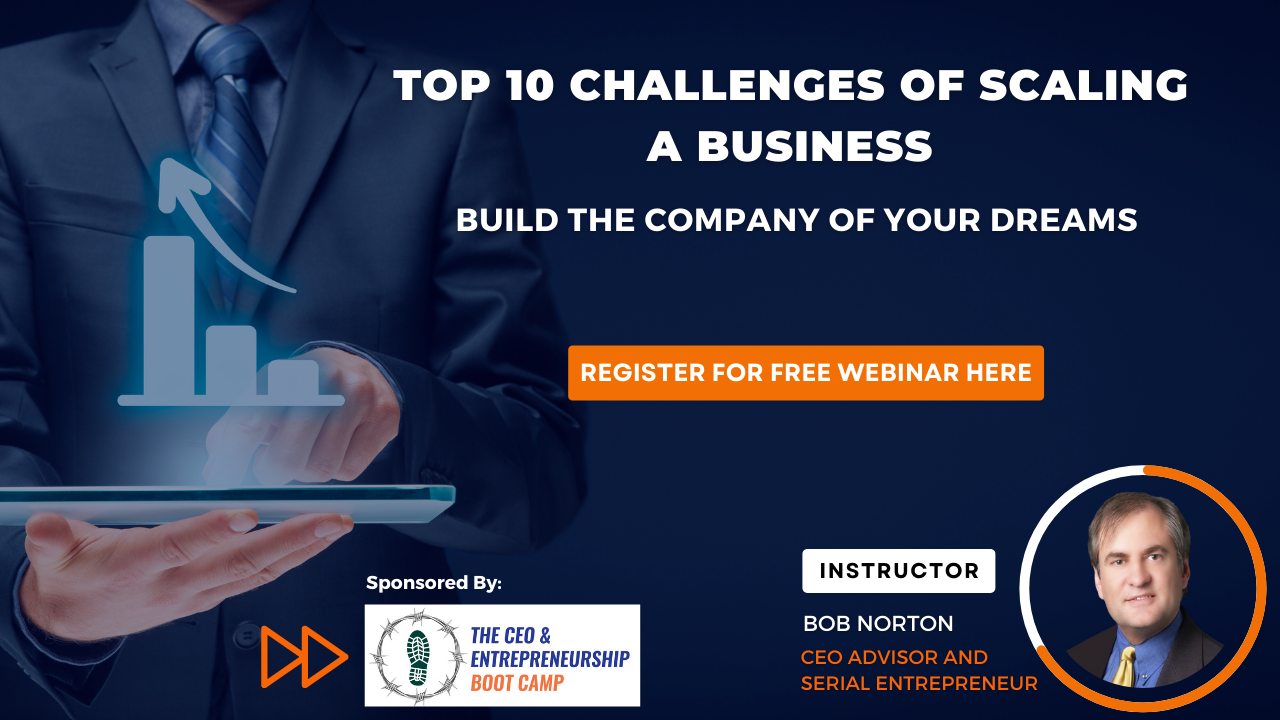What Kind of Return Do Investors Expect When They Invest In A Startup or Small Company for The Long Term?
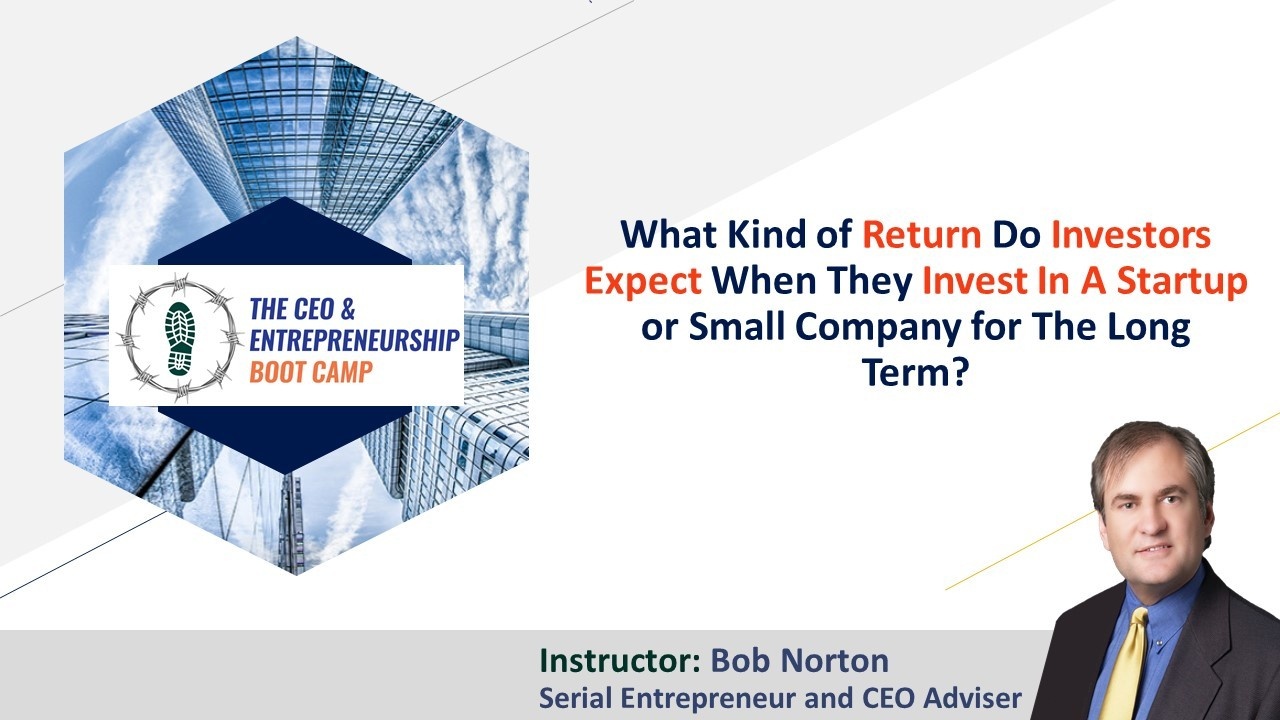
They say venture capitalist would like a 40% IRR which is an approximation of their ROI, but this is all fantasy based on assumptions that drive the financial projections. Pessimistic projections can be used to negotiate lower pre-money valuation prices. So the CEO/Founders are selling the potential while the investors are selling the downside risks.
Angel investors would like to see good returns like this too, but are unlikely to develop their own models to their own assumptions as the amount of work involve is large, and they have no associates to do that work. Angel syndicates on $1M+ deals might do this work though and use their results to negotiate equity prices.
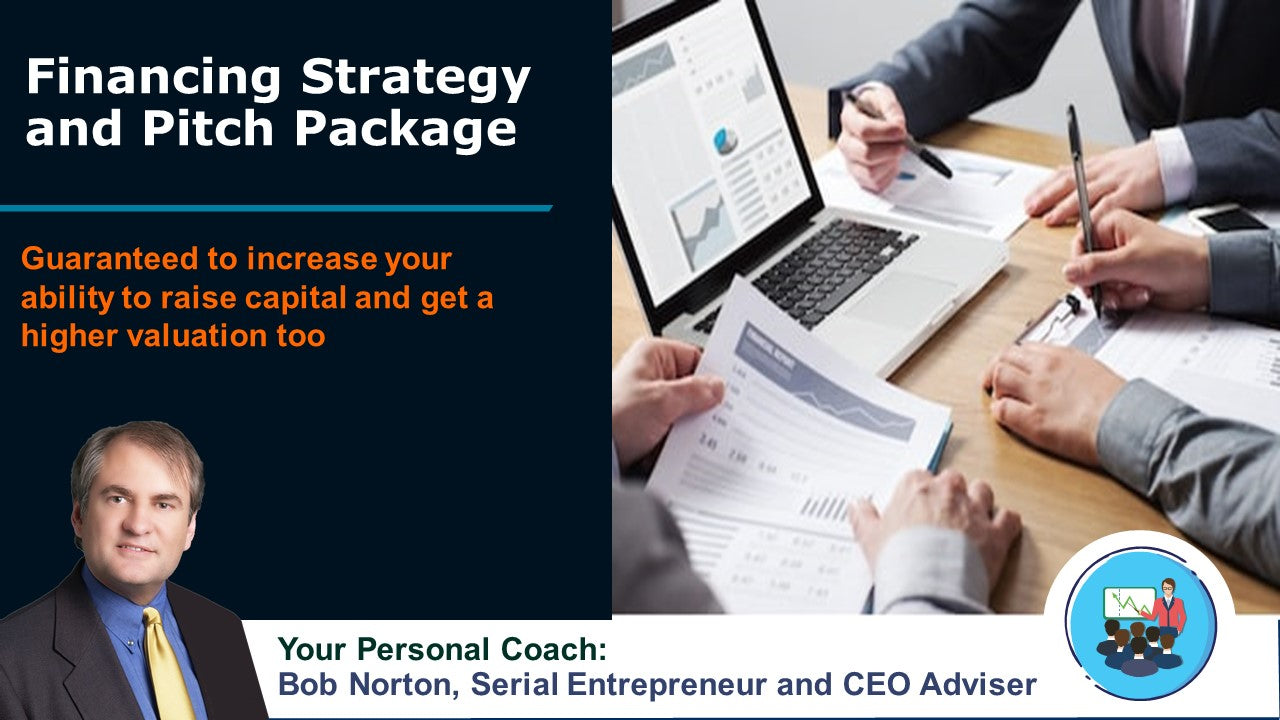
Click here to get this Financial Package
The reality is few deals ever perform anywhere near their projections as there are too many unknowns that early on to have any confidence. The numbers will be rerun every time there is a learning experience and could go up or down dramatically. Angels are protected...
What is the entrepreneurial process of creating a new venture?
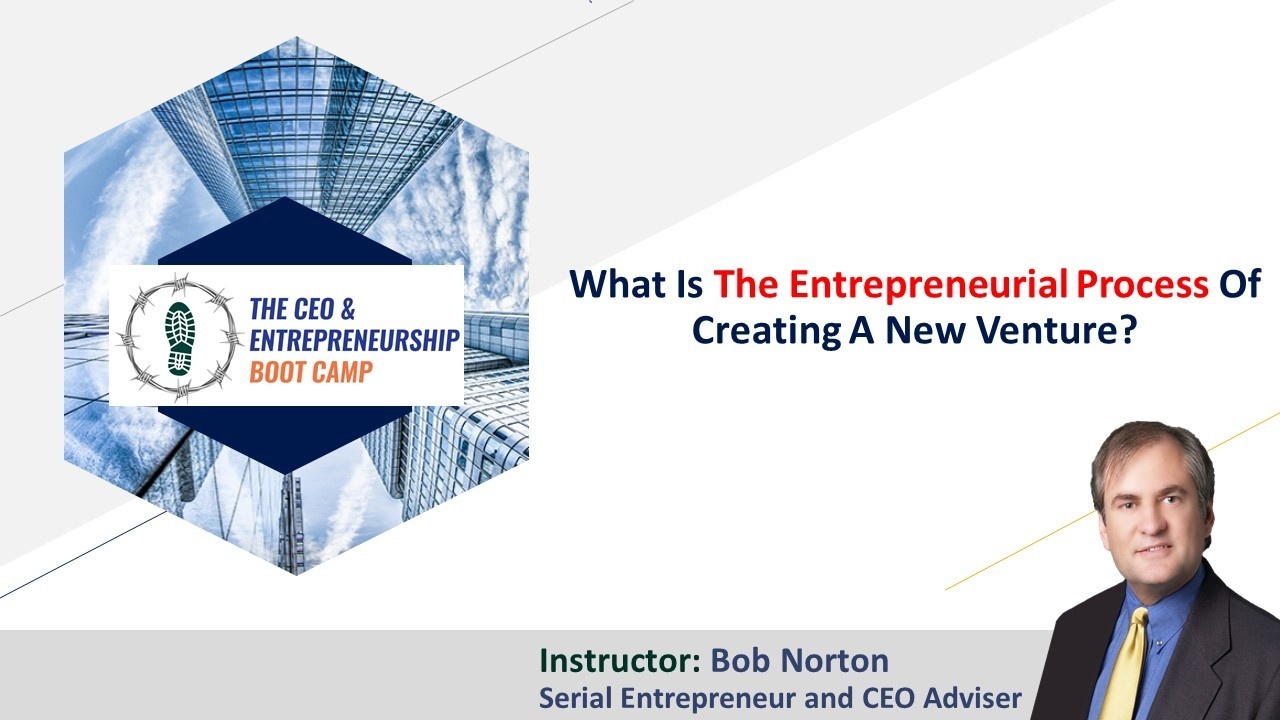
There are different processes, but the one we teach at The CEO Boot Camp that can almost guarantee success of a new company or product is shown here:
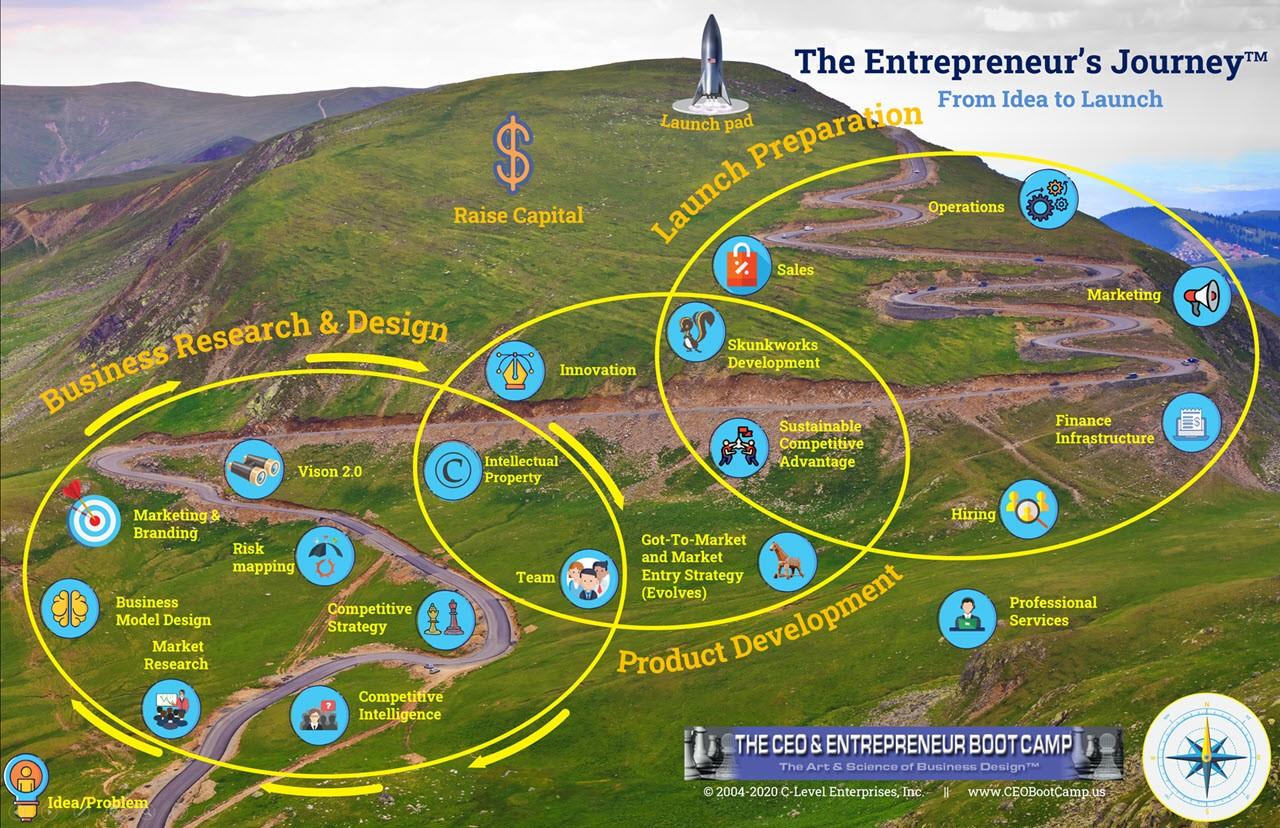
There is a free video course on this page explaining this Entrepreneurial Journey.
How to Raise Millions for Any Company - Online Video Course
Bob Norton is a long-time Serial Entrepreneur and CEO with four exits that returned over $1 billion to investors. He has trained, coached and advised over 1,000 CEOs since 2002. And is Founder of The CEO Boot Camp™ and Entrepreneurship University™. Mr. Norton works with companies to triple their chances of success in launching new companies and products. And helps established companies scale faster using the six AirTight Management™ systems. And helps companies successfully raise capital.
Call (619) SCALE06 or email [email protected] for a complementary strategic consultation.
Why do Most Start Ups Fail?

I wrote an eBook to answer this exact question, title The Top 20 Reasons Startups Fail and How to Avoid Them. It is based on some research. You can download it free here: top20
I have also created a 3-part video course here reviewing this question from the perspective of what learning and tools are required to avoid these twenty mistakes called The Entrepreneur's Journey here.
Join Live Webinar on 12th April 2022
Bob Norton is a long-time Serial Entrepreneur and CEO with four exits that returned over $1 billion to investors. He has trained, coached and advised over 1,000 CEOs since 2002. And is Founder of The CEO Boot Camp™ and Entrepreneurship University™. Mr. Norton works with companies to triple their chances of success in launching new companies and products. And helps established companies scale faster using the six AirTight Management™ systems. And helps companies successfully raise capital.
Call (619) SCALE06 or email...
Does a Startup Need Lots of Capital to Become a Big Company

How to start a company with far less capital and also make more money in the process
Venture capital investors need to put BIG dollars to work and have a short time frame (5-7 years typically). THEY need startups to move fast. And, yes, if you have 5–10 competitors getting market share then more invested capital will pay off. However, the smartest founders take another approach and raise less money at higher valuations later.
This alternative is a multi-step market entry strategy where a startup starts in a smaller niche to get some traction, proof of concept and cash-flow. Which they should always try to do anyway. The niche targeting requires less marketing and sales expense and gets higher sales conversion and ROI. Then they expand the target market with more/better product(s) or by selling in other markets (niches or verticals). Building a portfolio of niches and/or product before they go head-to-head with bigger competitors
You do not need $50 million in investment...
How Do I Start My Own Business From an Idea?

Well, I think the question is the wrong one to ask, really. It trivializes entrepreneurship. Would you ask, “How do I do my first brain operation?” Or “how do I play Carnegie Hall? Nope! The question should be what do I do to prepare to launch a startup?
First understand that ideas are literally worthless. The press promoting the concept that an "idea is worth millions" is a problem. Building a company takes many things, and the person with only an “idea” has no chance. It is typically a 3 to 5 year to turn an idea into a business. And that process will require hundreds of ideas, maybe thousands, and many skills on a team.
The truth is, there are hundreds of things you should do and learn before you even think and launching a company. Pretending it is one is ridiculous. And that is why over 85% of new companies fail. The number one reason for failure is underestimating the skills, time, money and team needed.
When I launched...
Job Scope in Early Stage Companies

In any startup company, EACH employee MUST wear many hats. In a large company, job specialization is the rule. However, job specialization does not make for a successful startup, as it requires too many people and both the costs and risks would greatly increase with the added levels of people and communication.
It is a well-known fact that there are diminishing returns with each layer and additional employees on any project. This is even more pronounced in knowledge-intensive areas and professional services like software engineering and other knowledge and design-intensive areas. (Read The Mythical Man-Month). In early-stage and smaller companies, each employee must provide a range of value-added responsibilities that might encompass several jobs at a large company.
Therefore, employee selection in early-stage companies is not only more critical because there are so few people, but also more fraught with danger because each person's "scope", ability and attitudes must be...
Why Startup Need 80% Solutions
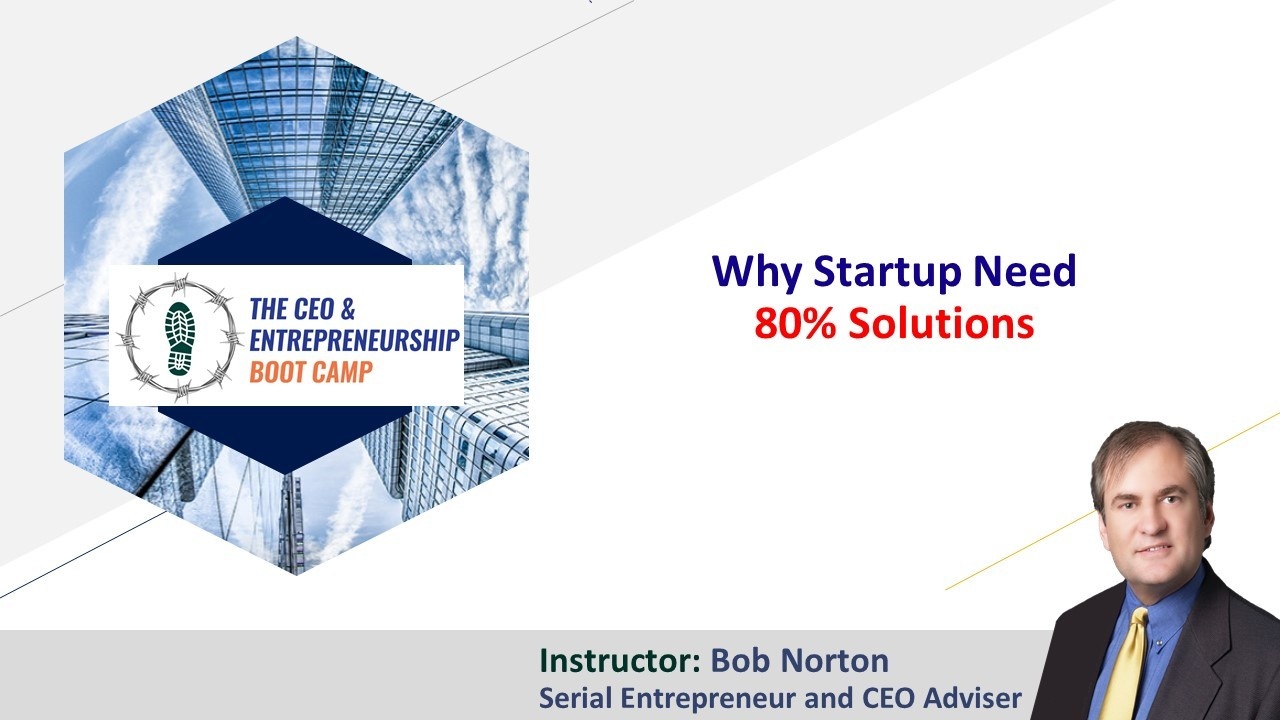
You can't be all things to all people
Ever notice how that last 10% of almost any job takes half the time or more? This is a simple fact of life in most tasks because the more detail you try to finish the further you get up that exponential cost/time curve to perfection. Even painting your house perfectly is an unachievable and ridiculously expensive goal. In fact, an excellent job will cost twice as much as a very good job, and that will cost twice as much as a "good" job, which will cost twice as much as an OK job. That means an excellent job can cost about sixteen times more (2 X 2 X 2 X 2 =16) than a good job! Think about that next time you get a fixed price quote! So you need to decide where you want to be on that quality curve, which is also exponential. How close will you want to look at that paint job to feel good about it? How much will customers want to pay? This fact of life applies to most products and services in some way.
Unlike large companies, where thousands of...
Services For Startup and Early-Stage Companies
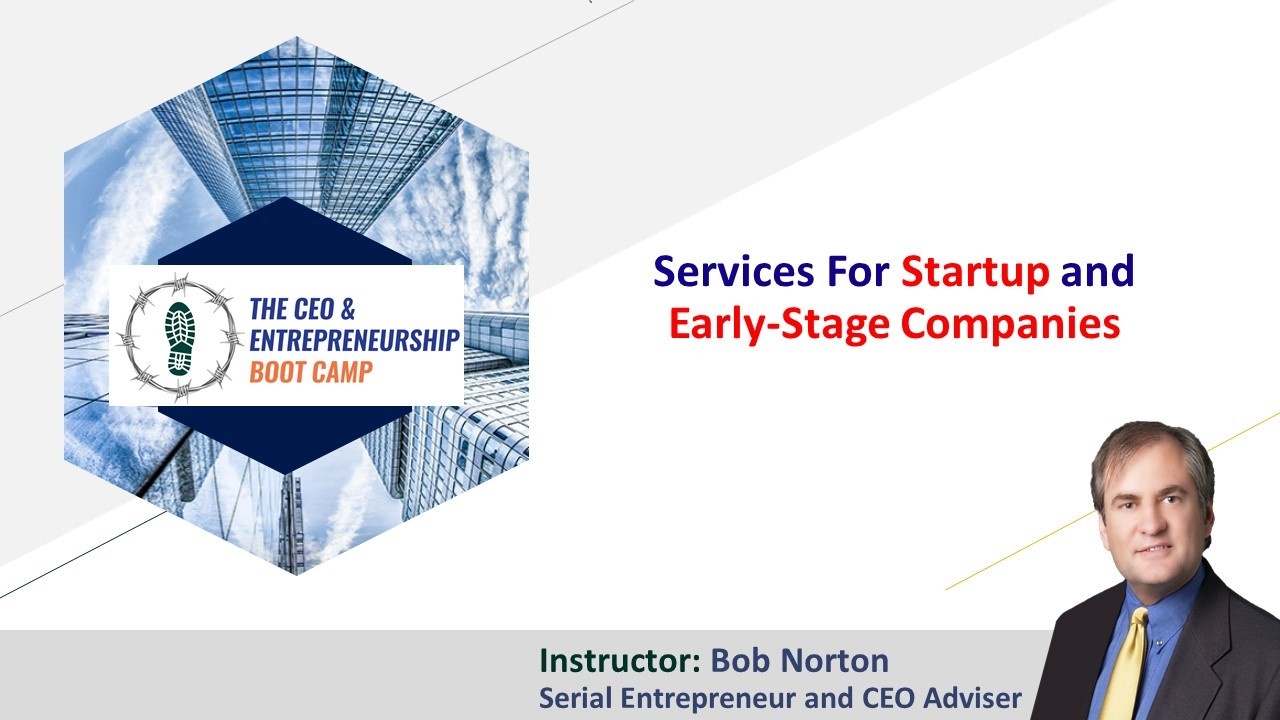
Early-stage companies are the most fragile, have the least resources and the biggest challenges ahead of them. Developing a new business is one of the biggest challenges in life and generally requires experience in at least five key disciplines (product/service development, finance, sales, marketing, and operations) to do well. For a founder or entrepreneur and their team to be successful, they must have not only industry domain experience but all these skills available to design the business at both the strategic and tactical levels (a vision). Taking all these disciplines into account and then allocating resources appropriately for the specific situation among these areas requires much experience and entails many trade-offs and judgment calls. The only experience can be our guide here. Identifying and managing risks is also something only experience and knowledge can conquer. For very early-stage businesses, hiring a full-time,...
How Do You Run A Start-Up Differently Than Other Companies?

A Perfect Metaphor For A Startup
I use many airplane and military metaphors, not because I was ever in the military, though I am a pilot, but because there are so many special-purpose planes that can be used to show an exact point or purpose just like a market niche. One of the best models I have seen on how to run a start-up was the development of the SR-71 spy plane by Lockheed’s skunkworks. The SR-71 spy plane was so far ahead of its time, that 30 years after its initial design and development, it was still the fastest plane on the planet. The development of the plane is a great metaphor for a startup company, and the management methods used should be examined by every startup executive as an example of product design and development on minimum resources that yield maximum results. The plane itself is also a great metaphor for a startup company, as you will see below.
The Skunkworks group’s methods and results are a classic example of what can be done...
What are some tips for starting a new company to prepare?

A tough question that can only be answered well by looking at the big picture. “Tips” implies simple little things, but none of these are tips really. They “must do” things if you want to have good chances of success.
Prepare for years in advance, building your skills in management, domain expertise and marketing/sales.
The CEO & Entrepreneur Boot Camp - CEO Bootcamp US
Get a mentor who has experience as an entrepreneur growing a company successfully
Read at least 2 to 3 books per month
Bootstrap taking your time to build out your plan doing market research, competitive intelligence and talking to prospects and iterating your business model. Be sure it is 100% differentiated and unique, and you can create some sustainable competitive advantage. Without both of these, raising capital will be near impossible.
Set up financially to need no income for 6 to 12 months minimum after you quit your job. Moonlight until you are very clear on the plan and vision, and get...


